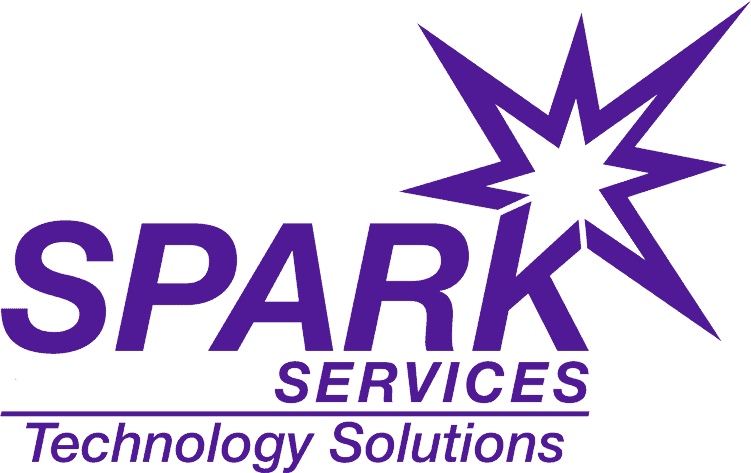Making business calls is likely to become common for small businesses that don’t even have to think about it yet.
A tremendous amount of technology is operating behind the scenes to connect the caller to the call recipient. Picking a phone infrastructure is one of the most significant decisions a company has to make. Even with numerous contact channels available today, a business phone is still a must-have.
In previous years, companies picked a traditional landline phone as there was no other alternative. Now, the situation is complicated. VoIP (Voice over Internet Protocol) and PBX (Private Branch Exchange) are two additional options. Both offer features you need from a business phone solution. This post will provide a complete breakdown of VoIP vs. PBX, including pricing, pros, and cons.
VoIP
VoIP stands for Voice over Internet Protocol, which refers to any voice call that uses the internet instead of dedicated copper wires like a landline. If you’ve ever used Skype or FaceTime to talk to a friend or family member, that’s a VoIP call. One can make VoIP calls from most devices with an internet connection; it’s one of the most significant advantages of switching to VoIP. You can use VolP on your mobile phone, laptop, or desk phone that supports the protocol. Most telephone carriers worldwide have upgraded their networks to use VolP over the last few years.
Pros
- With VoIP, you pay only for your internet connection. Calls between individuals with VolP equipment, even international calls, are free. VoIP offers a wide range of features, including call forwarding, blocking, caller ID and voicemail, remote management, automatic call distribution, and interactive voice recognition.
- VoIP integrates easily with other systems and helps staff collaborate through voice, video, web conferencing, or instant messaging, usually from a single user interface.
- Users can use your communication system remotely and flexibly, with access to the data and network whenever and wherever they need it.
Cons
While VoIP is often cheaper and more flexible than traditional phone systems, it’s worth keeping in mind potential difficulties.
- Depending on the broadband, hardware, and services, the quality and reliability of VolP connections may not be as good as the standard phone connections. Common issues that can happen during calls are delays, noise, and echo.
- VoIP depends on the internet connection. If the connection goes down, so does the phone line. Similarly, insufficient bandwidth will likely cause quality issues with the service.
- As with other internet technologies, security is a significant consideration with VolP. Possible threats include identity and service theft, phishing, viruses, malware, spamming over internet telephony, call tempering, and denial of service attacks.
- You can incur extra costs if you use VoIP to phone someone without VoIP capabilities.
PBX
PBX is a business phone system that connects office desk phones within the same network, enabling employees within a company to make calls to one another and to transfer calls for free. There are typically three kinds of PBX: traditional PBX, IP PBX, and cloud PBX. IP PBX phone systems can offer enterprise-level UC (Unified Communication) solutions with multi-level IVR (Interactive Voice Response) for businesses of different sizes.
Pros
- On-premise PBX offers customers more control over their phone system.
- After initial setup, customers tend to get lower monthly recurring costs.
- Ability to integrate other company software programs, i.e., CRM systems.
- Modern phone lines can lower the overall monthly costs (IP PBX)
- PBX provider will install, program, train staff, and qualify the network.
- All data and settings are in the control of the customer.
- Ideal for larger organizations, which already have the infrastructure to support and host the phone system.
Cons
- Initial costs are higher due to the purchasing of hardware and software licensing.
- Internal management and expertise are required.
- Maintenance costs are the responsibility of the customer.
- Handling across multiple sites can be complex.
- Downtime can occur as an outcome of a power outage if no backup power is present.
- Network security has to be managed by the customer.
Pricing
While VolP has a much lower upfront investment than PBX, depending on the provider, plan, features, and number of users you need, overall VolP costs can quickly add up. Though VoIP costs may be higher than initially anticipated, they offer enormous savings over premise-based PBX phone systems.
Average Costs
PBX:
– Hardware/Equipment Cost: $5,000-$9,000 for 15-20 users
– Software Licensing Costs: $3,000-$4,500
– Installation/Setup Costs: $1.000-$1.500
Maintenance Costs: Average of $3,000-$4,000/year
VoIP:
– Hardware/Equipment Costs: Can use existing devices for calling, including smartphones and desktop computers, which can be as low as $150.00
Software Licensing Costs: Bundled monthly service plans from $20.00-$50.00+/user per month
– Installation/Setup Costs: $35.00-$50.00
– Maintenance Costs: Maintenance is handled by the provider.
Key Differences
Call Quality
The quality of calls using both options is similar. With PBX, the call quality depends mainly on the hardware, which includes the routers and phone models. So if the system is appropriately set up and the phone models are good quality, the quality will be high.
With VoIP, the situation is a bit more complicated, as there can be several causes of low sound quality. One of the most common reasons is a slow or unstable internet connection. In addition, if the router isn’t configured correctly, this might also cause call delays and hiccups to the point of VolP being unusable.
Initial Setup Costs
The significant difference when it comes to VoIP vs. PBX networks is costs. Setting up a PBX network is complicated and expensive, where the user has to pay upfront for a system power supply, headsets, etc. Setting up a VoIP network, meanwhile, is much cheaper. If you already have an existing internet connection, there’s no need to set up an entirely new system. One only needs to invest in a router, phone, and computer call software.
Scalability
A VoIP business phone system can be scaled rapidly. As VoIP business phone systems are typically license-based, the extension is created once the license is added. With PBX, it’s not as simple. First, one has to add extra phone lines and install new hardware. Then, for new offices, you need to install a completely new PBX system.
Running Costs
VoIP providers typically follow a subscription model. At the same time, the running costs of on-site PBX depend on the setup, including software licenses, maintenance and service fees, update fees, and your phone bill. Business landline costs of the PBX systems alone usually can be up to 50% more expensive than VoIP phone systems.
If your business has a distributed team, where many team members work from home, in cafes, coworking spaces, or from the road, VolP may be the right phone system for you. A VoIP system enables you to make and receive calls on laptops and cell phones instead of office extensions on hardwired desk phones. As a result, no matter where you are, your customers will be able to reach you when they need you.
Need a VoIP system in place? SPARK Services can help you move to VoIP and get all the benefits of technology!




